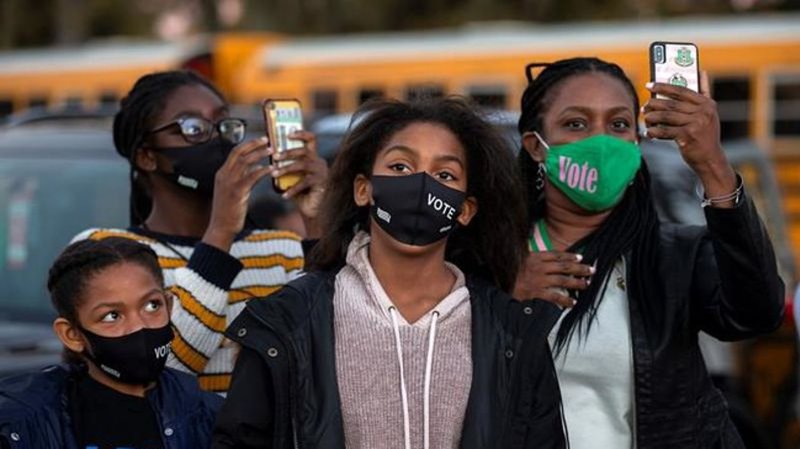
Black leaders cheer Georgia success, push for more progress
What started as a day of celebration for Black organizers, voters and other Georgians who helped deliver two historic Senate runoff victories was overshadowed Wednesday when a violent, mostly white mob of President Donald Trump’s supporters stormed the U.S. Capitol.
But Black leaders and organizers say the rioters’ insurrection won’t deter the momentum achieved after the hard-fought victories of Georgia Democrats Jon Ossoff and Raphael Warnock. Instead, it serves as a harsh reminder of the work that lies ahead for the nation to truly grapple with white supremacy and racism, which Trump’s presidency emboldened.
“It’s a little bit bittersweet because on one hand it feels like vindication that if we invest in our communities and our organizations, then amazing things can happen,” said Cliff Albright, co-founder of Black Voters Matter, which estimates that it reached 2.8 million individuals in Georgia through text and phone banking campaigns, digital and social media advertising, door knocking and street outreach, and billboards.
“But then you come around the next day and people are literally swarming the Capitol in the name of overturning an election and trying to take away the power of Black voters,” Albright said. “So while it’s a victory that’s worth celebrating … it’s still in this wider context of what our larger struggles are and we’ve got a long way to go.”
